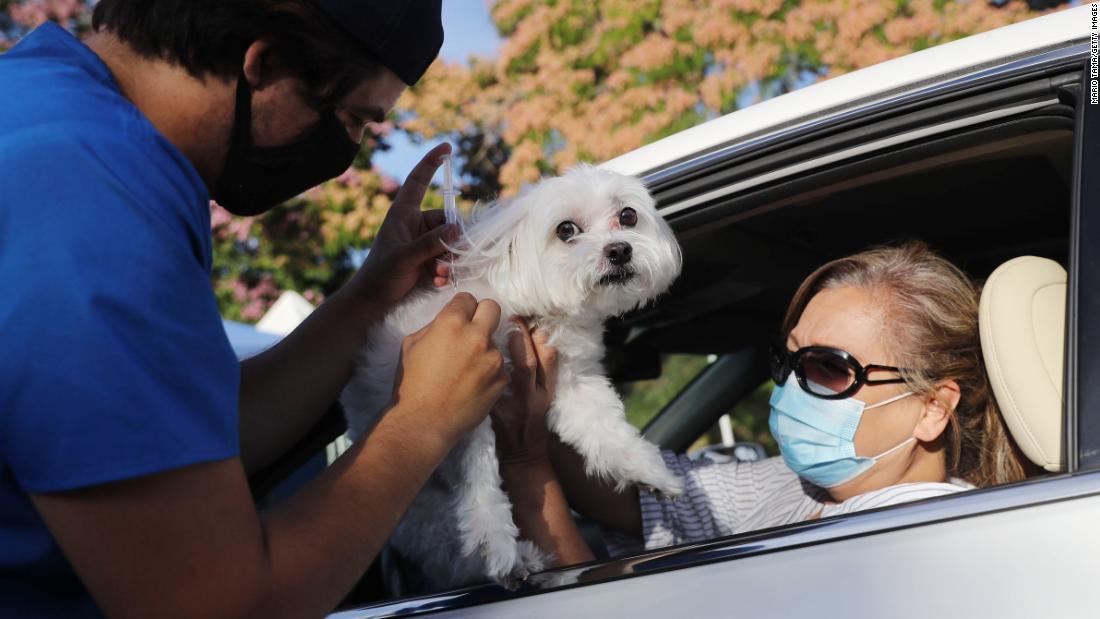
[ad_1]
“Based on the limited information available to date, the risk of animals, including pets, transmitting Covid-19 to humans is considered low,” CDC official Dr Casey Barton Behravesh said during ‘a briefing Monday.
Evidence suggests that Covid-19 likely originated from animals before becoming widespread in humans.
“As of mid-January, we are aware of 187 animals from 22 countries with confirmed infection with SARS-CoV-2,” Behravesh said, noting that these figures do not include mink in mink farms. She added that no animal deaths have yet been linked to the virus.
The CDC closely follows research into coronavirus infections in animals and has classified some animals based on their risk of infection. Animals highly susceptible to the virus include cats, hamsters, non-human primates, rabbits, mink and deer, Behravesh said.
Protect the animals
Behravesh said that pets, especially cats and dogs, are the main group of animal species affected by the coronavirus.
Although the risk of animal-to-human transmission is low, people can transmit the coronavirus to pets, Behravesh said.
The CDC recommends that people treat animals the same as they would human family members to protect them from Covid-19, limiting contact with people outside the home. The agency advises keeping cats indoors and preventing other pets from roaming freely. Masks should not be put on pets, as they could cause damage.
Those infected should avoid contact with pets, that is, not kissing, snuggling or sleeping in the same bed, according to the CDC. In fact, people with coronavirus should try to get another member of the household to take care of pets. If that’s not possible, the CDC says people should wear masks when interacting with their pets.
People who suspect their pets may have coronavirus should see a veterinarian. Behravesh noted that among 93 cases of Covid-19 in cats and dogs in the United States, 53% did not have any symptoms. The most common symptoms reported in animals are respiratory signs, such as coughing or sneezing. Other symptoms reported include fever, lethargy, vomiting, and diarrhea.
Animals that have tested positive for the coronavirus should be isolated from humans and other animals, Behravesh said.
There is no evidence that pets carry or spread coronavirus on their skin or hair, and it is important not to wipe or wash animals with chemical disinfectants, Behravesh said.
“Pet poison controls have actually had an increase in calls due to these types of exposure in pets,” she said.
The United States Food and Drug Administration has not approved any drugs for the treatment or prevention of Covid-19 in animals, Behravesh noted.
[ad_2]
Source link